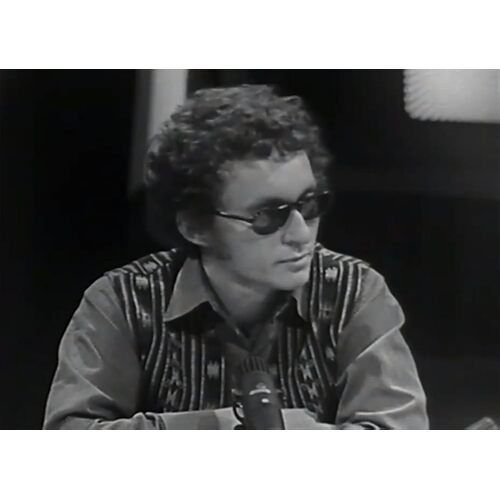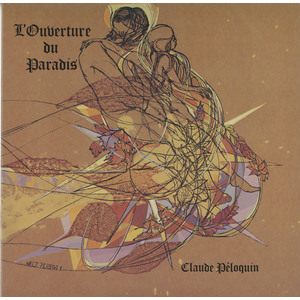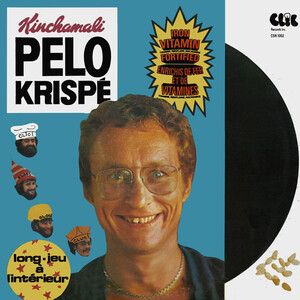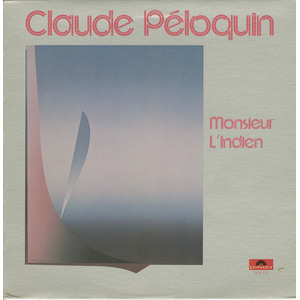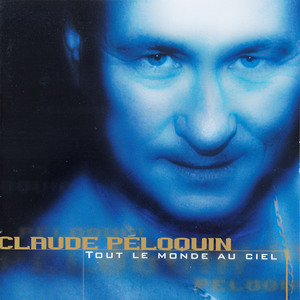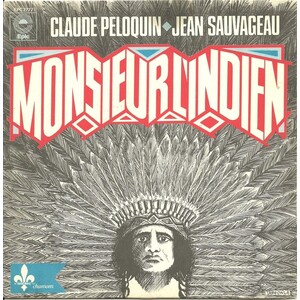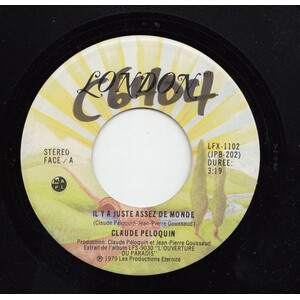Péloquin, Claude
Websites:
https://citizenfreak.com/artists/101011-peloquinsauvageau
Origin:
Montréal, Québec, 🇨🇦
Biography:
Claude Péloquin: The Radical Voice of Québec
Claude Péloquin (August 26, 1942 – November 25, 2018) was a poet, lyricist, singer, filmmaker, and cultural agitator whose provocative and visionary work helped redefine the artistic identity of Québec during the transformative decades of the 1960s and 1970s. A fearless and sensual voice, Péloquin was both a chronicler and catalyst of the Quiet Revolution, challenging conformity and embracing the revolutionary power of language, sound, and image.
Early Life and Artistic Awakening
Born in Montreal, Péloquin was classically educated and received his baccalaureate in 1961. Yet his true education unfolded in the heady currents of artistic rebellion sweeping across North America in the early 1960s. Drawn to poetry, music, and the emerging counterculture, Péloquin quickly became a central figure in Québec's avant-garde scene.
He co-founded radical performance collectives such as L’Horloge du Nouvel Âge and Le Zirmate, staging multimedia events that blended spoken word, light shows, experimental music, and dance. These happenings were part poetry reading, part political protest, part surrealist explosion—a perfect mirror of Péloquin’s creative spirit.
The Poet as Provocateur
Péloquin’s literary debut came in 1963 with Jéricho, the first of over twenty volumes of poetry he would publish over the course of his career. His writing—lyrical, hallucinatory, rebellious—was deeply influenced by beat poetry, surrealism, erotic mysticism, and psychedelic consciousness. His verses rejected linear logic and bourgeois morality, favoring ecstatic affirmations of life, sex, love, and cosmic wonder.
One of Péloquin's most famous poetic phrases—« Vous êtes pas écœurés de mourir, bande de caves? C’est assez! » ("Aren’t you fed up with dying, you bunch of fools? Enough!")—was originally part of his 1970 National Film Board documentary L’Homme nouveau. The phrase was later immortalized in a mural by Jordi Bonet at the Grand Théâtre de Québec, and became a defining statement of his poetic ethos: a wake-up call to the sleepwalking masses.
Péloquin-Sauvageau: Electronic Alchemy
A key chapter in Péloquin’s career was his collaboration with electronic composer and inventor Jean Sauvageau, who built his own polyphonic synthesizer, the Machine de Sauvageau. Together, they formed the duo Péloquin-Sauvageau, and in 1972 released the genre-defying album Laissez-nous vous embrasser où vous avez mal ("Let Us Kiss You Where It Hurts").
The record is now considered a cult classic of Québécois experimental music. Fusing Péloquin’s sensual, rebellious poetry with Sauvageau’s swirling analog synth textures, the album created a sonic landscape that was both deeply human and otherworldly. Songs like “Monsieur l’Indien”—which laments the dispossession of Indigenous peoples—offered not only daring lyricism but also sharp social critique. Other tracks, like “Mama Vagina”, openly explored sexual liberation in ways that shocked and inspired audiences in equal measure.
The album’s radicalism—both sonic and thematic—stood apart in an era when progressive rock was still largely dominated by Anglo-European artists. It remains a singular expression of Québécois cultural identity: poetic, experimental, politically engaged, and fearlessly personal.
Mainstream Impact and the “Lindberg” Moment
Péloquin's reach extended beyond the avant-garde. In 1968, he wrote the lyrics for “Lindberg”, performed by Robert Charlebois and Louise Forestier. The song—an explosion of surrealist imagery, driving rhythms, and Québécois joual—became a cultural landmark, credited with ushering in a new era of francophone rock and helping to legitimize the use of everyday spoken French in popular music.
“Lindberg” won the Prix Félix-Leclerc in 1969 for Best Canadian Original Song, and helped solidify Péloquin's place not only as a poet, but as one of the architects of Québec’s modern musical identity.
Film, Multimedia, and Late Career
Péloquin continued to explore new mediums. His work with the National Film Board of Canada resulted in several short films, including L’Homme nouveau, which combined documentary realism with poetic provocation. His performances and radio appearances remained unpredictable and bold, always resisting easy categorization.
Over the decades, Péloquin released multiple spoken-word albums and published further collections of poetry, including La valse fatale (2017), a return to lyrical intensity in his later years. In 2013, he collaborated with the contemporary Québécois singer-songwriter Yann Perreau on the album À genoux dans le désir, which brought Péloquin’s work to a new generation, once again fusing music and verse in thrilling ways.
Death and Legacy
Claude Péloquin died on November 25, 2018, at the age of 76. Though he often stood outside the institutions of Québec’s cultural establishment, his influence is undeniable. He pushed language to its emotional and musical limits, fought tirelessly against conformity and repression, and helped to shape the poetic, political, and sonic identity of modern Québec.
Péloquin’s life and work remain a testament to the power of the artist to disturb, to elevate, and to awaken. As he once wrote: “Tout est parfait.” Everything is perfect. But only, one imagines, when we dare to live—and to dream—as freely as Claude Péloquin.
